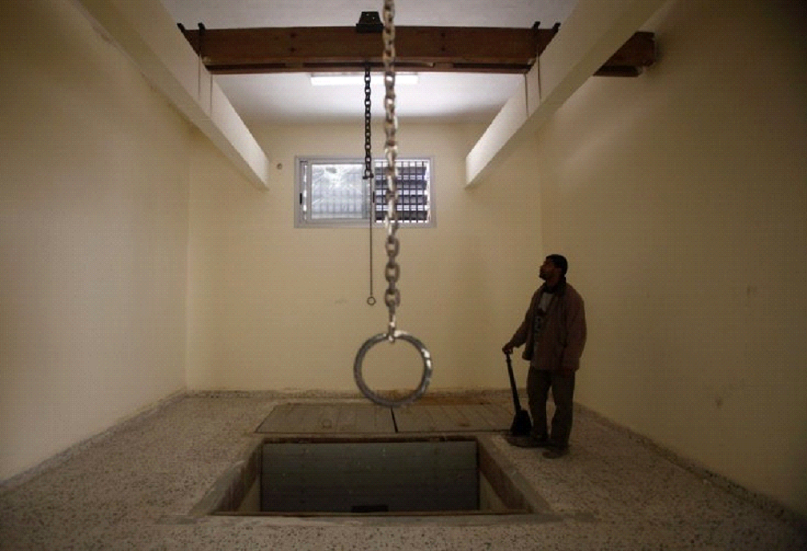
We Monitor the AU, its Members, holding them accountable to those standards they have set and commitments they have made, to eradicate torture and end the death penalty.
We Educate
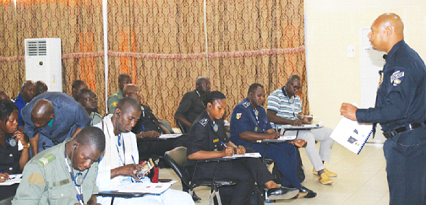
Torture happens in secret, most of the times. Many times, in detention centres, away from public gaze. Right now, there hundreds of thousands of people are behind bars in Africa. Even more are living behind locked doors in institutions such as police stations, psychiatric hospitals, military detention centres, asylum centres and, to some extent, refugee camps. It is often behind the locked doors, outside the public spotlight, that torture or other cruel, inhuman or degrading treatment or punishment takes place.
AU Watch monitors conditions, documents the abuses and develops new interventions that can prevent and combat torture during custody. We educate prison, police and other officials about the what the African Commission’s Committee for the Prevention of Torture in Africa (CPTA), the United Nations Subcommittee on Prevention of Torture and other Cruel, Inhuman or Degrading Treatment or Punishment (SPT) are. Through our seminars, workshops and teaching for these groups, we provide expertise to support our partners and communities to prevent torture and help to abolish the death penalty.
In collaboration with local partner Our ‘Prison Watch Projects’ contributes to the prevention of torture and the protection of human rights in prisons and police stations through monitoring, knowledge building and innovative social and advocacy efforts.
OBJECTIVES:
Detainees (for example, people in prison) are treated in accordance with international norms and standards. Prison Watch will be regularly present in prisons and at police stations to monitor conditions and engage in advocacy.
⦁ To create national dialogue on torture and the death penalty;
⦁ Improving the relationships between inmates and between inmates and prison staff (focusing on respectful relationships rather than control). Through innovative social efforts, inmates will be made aware of their rights and there will be the opportunity for conflict resolution and mediation;
⦁ Raising awareness of human rights as a tool to ensure security, dignity and national development.
Outcomes:
⦁ An abolition of the death penalty;
⦁ A reduction in cases of degrading treatment and excessive use of force, as well as a transition to more humane prison practices;
⦁ Inclusion in the curriculum of schools and colleges courses on the African Human rights system;
⦁ That authorities be held accountable for their actions;
⦁ Increased interaction between civil society, policy makers and government officials on the prevention of torture and cruel, inhuman or degrading treatment.
Project Prevent Torture
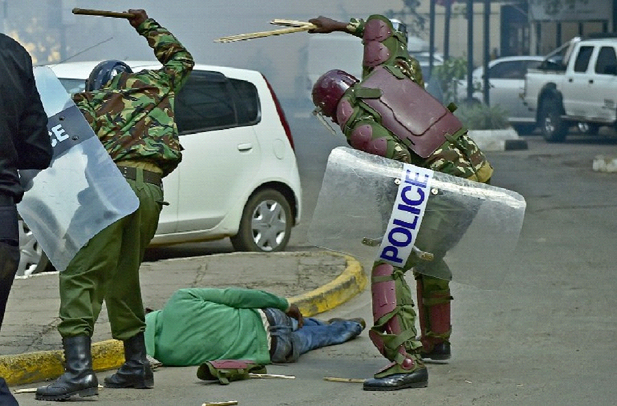
Media, Advocacy & Outreach

Advocacy and Outreach Program educates policymakers and the public about torture carried out by countries all over Africa. We lead campaigns and demonstrations to protest against human rights abuses. The program offers ways to combat torture and encourages support for survivors all over Africa. Our advocacy Agenda currently focuses on four key areas:
⦁ Influencing AU and AU Member States to do more to promote and protect human rights, especially the rights of victims of torture;
⦁ Holding the AU and its Members, including police and justice institutions to do the right things and holding them accountable.
⦁ Training. Since below.
⦁ We train survivors to share their experience with the AU, especially during sessions of the African Commission and other high-profile AU events.
We expose Africa’s torturers, including states holding them accountable for the suffering they have inflicted upon those in society who seek justice. We provide litigation and advocacy support to individual plaintiffs, organizations and attorneys in the form of: research and analysis on the African Human Rights System; participation in amicus curiae ; and, procedural and practical guidance on engaging with Africa’s human rights mechanisms.
We are unyielding in our pursuit of criminals who should be in prison. We identify and prosecute human rights criminals who have committed the horrendous crimes of torture or other forms of cruel, inhuman or degrading treatment or punishment. Torture violates the African Charter on Human and People’s Rights, the Universal Declaration of Human Rights, the Geneva Conventions of 1949, Additional Protocols I and II, and the United Nations Convention Against Torture, which has been ratified by 158 countries, as well as domestic laws implementing treaty obligations.
Litigation

General Legal Action

Staffed by lawyers with expertise in representing victims of torture, we help victims and survivors navigate the complex courts systems. We work that AU Member States comply with the hard and soft law of the CPTA and other regional and international obligations. Our legal experts work on the preparation of consultation responses to new police bills, shadow reports and other material for use by the AU and its Members. Within the African Human Rights System, also means reporting to the CPTA and the African Commission.
AU Watch is pioneering an approach to transitional justice in Africa, especially for communities emerging from periods of conflict or repression. In The Gambia, for example, we are working with The Gambia Truth and Reconciliation Commission and local practitioners to prosecute people who have been identified as committing crimes against humanity. We are designing and developing creative, strategic, and flexible approaches in partnership with local practitioners – prosecutors, investigators, and victim advocates – to assist them in ensuring that justice is fulfilled.
Transitional Justice Approach

Human Rights Education

Human dignity is the core of human rights and human rights education, and is granted to all human beings irrespective of religious, birth, gender or civilization.
Human rights education needs a three-dimensional approach to be effective:
Knowledge-based (to know about human rights: e.g. the history of rights, how democracy functions), skills-based (for human rights: self-knowledge and self-awareness, realising your own prejudices) and environment-based (in or through human rights: creating a “whole-school policy”).
AU Watch Human Rights Academy is assisting schools bring citizenship and human rights education into the classroom. We are pioneering human rights education right from nursery. We are developing human rights syllabuses and curriculum on the African Human Rights System f for students at all levels. Developing. We think human rights education from nursery should be made compulsory. A core component of some of the human rights courses we run include an understanding of the work of the United Nations Subcommittee on Prevention of Torture and other Cruel, Inhuman or Degrading Treatment or Punishment (SPT) and the African Commission on Human and Peoples’ Rights’ Committee for the Prevention of Torture in Africa (CPTA).
For more information on our work, please come along.
AU Watch offer a range of human rights trainings on the African Human Rights System to organizations and groups. Training sessions are designed to build capacity to incorporate relevant regional and international legal norms, standards and laws into their public education, litigation, and advocacy campaigns, and to enable them to effectively engage with regional and international human rights monitoring bodies and courts.
Trainings are tailored to the participants’ interests, experience, and goals.
Please contact IJRC for further information or to schedule a training session.
We Train
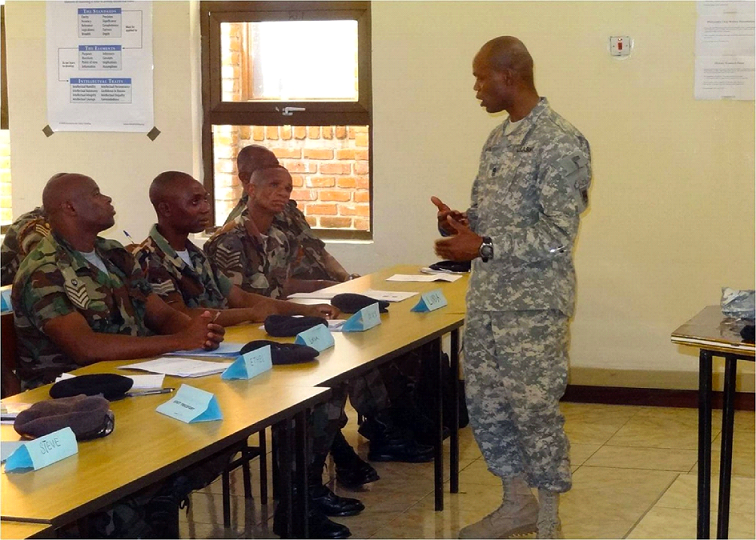
We Provide Resources
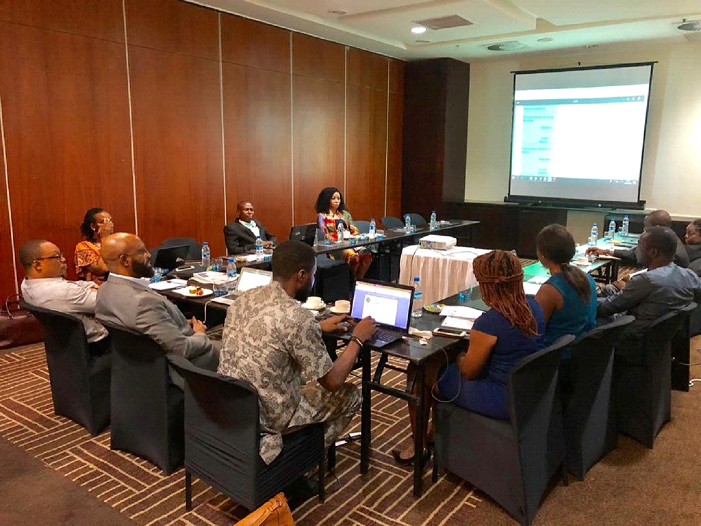
We provide lawyers, CSOs, and victims of human rights abuses with the information and resources they need to effectively use to promote and protect human rights, including advocacy before the African Commission, the African Court, and other sub-regional human rights monitoring bodies. We also provide resources to lawyers and CSOs, individuals to litigate before national courts. AU Watch provides human rights educational materials, training workshops, and advice to schools, colleges, individuals and groups around Africa.
Our inter-disciplinary Research Centre is s a subunit of AU Watch’s Research Centre. Research work at AU Watch deals with a broad range of human rights relevant topics. Based on its work since we launched in 2014 and in light of upcoming developments within the international human rights discourse, our unit focuses its expertise in the following areas:
⦁ The Death Penalty in Africa
⦁ Human Dignity and Public Security
⦁ Asylum, Anti-Discrimination and Diversity
⦁ Women’s Rights, Child Rights, Anti-Trafficking
⦁ Human Rights Education / Education for Democratic Citizenship
Besides the topic-wise structured focuses, current human rights questions at our unit are on the Department’s research agenda, and are dealt with at events and in publication projects.
Anti-Torture & Death Penalty Research
